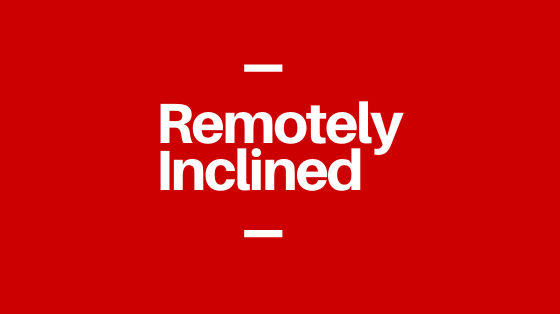If you’re American, it’s election day. And if you are not American or live anywhere else in the world, I’m sure you still know it’s election day in the US. I’m Canadian and live in Canada, where our media outlets do more in-depth analysis of US problems than Canadian problems some days. However, I used to live in the United States, so its political system and people hold a special place in my heart.
This newsletter isn’t getting political: I won’t get into all the reasons to vote for one candidate or the other. Instead, I want to explore how politics applies to remote work.
Back in May, I wrote an op-ed entitled Remote Work Can Heal America. It was pretty well-received, and even shared by a few media CEOs like Rafat Ali from Skift Media.


I was - and still am - feeling good about that op-ed. I stand by its core message that remote work not only opens up new opportunities for people who were left out of the urban coastal sprawling of America, but also creates new common ground that, hopefully, can address some of the divisions in the United States.
But then I read something yesterday that had me questioning the whole thing.
ProPublica, a nonprofit investigative journalism outlet, published this deep-dive into Arise, a customer service agency that became known for taking advantage of its workers. In hot takes that would make even Uber’s record on treating workers blush, Arise actually charges its workers to work for them, talking about them as “entrepreneurs” to make the fee somehow seem reasonable. In many cases, workers make less than minimum wage after fees are deducted.
And you know what their god-damned marketing strategy was to recruit workers? Remote work and entrepreneurship. Freedom from the 9-5. The ability to work from home. This company preyed on people left out of the traditional labour force and used the banner of remote work and entrepreneurship to do it. As an advocate for remote work, it makes me sick to my stomach.


So while I stand by my comments back in May, I realize how romanticized they were. I, sitting comfortably from my (admittedly tiny) Toronto apartment, wrote about how Americans deserve more opportunity and many were left out. While my statements may have truth to them, I clearly did not understand the depth to which the very thing I said would be their deliverance is the thing that put them in the bad situation to start with.
For those folks wary of remote work because of companies like Arise, I get it. It took me a bit longer than I’d like to admit. But now that I know how much the guise of remote work was used to take advantage of people, I can see how anyone claiming remote work is the solution would be met with skepticism (at best) and hostility (deservedly).
Now, you might be wondering if my choice of title - “The Politics of Remote Work” - was intended to just link up to election day. It’s not. There is a political solution. Both candidates claim they are going to protect workers. For argument’s sake, let’s say both candidates are earnest in their statements and have truly good intentions to protect workers. If that’s the case, then they need to think about all workers, including freelancers, contractors, and other entrepreneurs taken advantage of by companies like Arise.

Can you imagine having to pay to earn less than minimum wage?
So much of the American dream is predicated on pulling yourself up by your bootstraps and building something on your own: also known as entrepreneurship. It’s the fabled stories of humble beginnings that turn into gilded mansions that keep the American dream alive even as reality seems to crumble.
If the American dream in this incarnation is going to continue - and it’s neither my choice whether it does nor my place to have an opinion - then politicians have an obligation to stop those who would pervert the dream to take advantage of others. It’s not about handouts or guaranteeing any success. It’s about preserving the quality of a dream so that everyone can access it.



